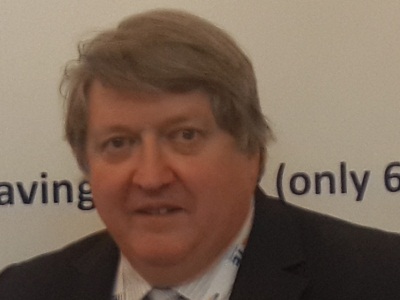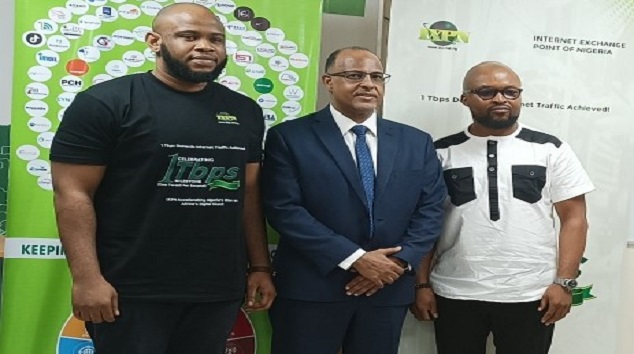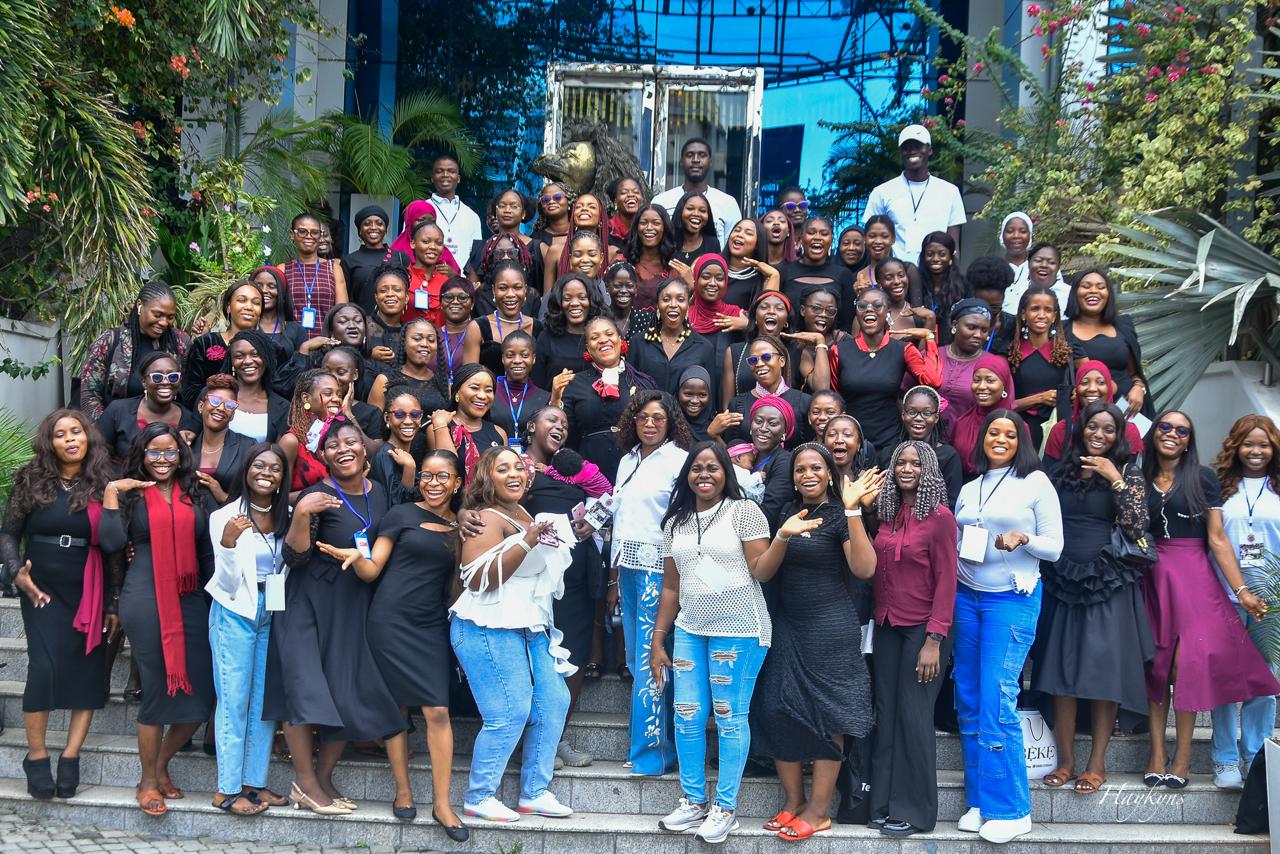Telecom
Interconnect Exchange Carriers Switch to WTL

World Telecom Labs (WTL) on Tuesday announced that its specialist high capacity voice switching equipment will be deployed by five of Nigeria’s interconnecting exchange carriers.
Licensed by the Nigerian Communications Commission (NCC), the carriers – Breeze Micro, Solid, Exchange, Niconnx and ICN – were established to increase competition and transparency in the Nigerian telecom marketplace.
The four leading mobile operators in Nigeria are now all required to divert 10% of their inter-carrier voice and SMS traffic to one of these operators.
The five licensees are initially acting as wholesale interconnect carriers for TDM voice traffic and are using WTL’s switches to transfer traffic between the four existing mobile networks.
WTL has also helped each carrier with its billing processes. It has developed a sophisticated billing system for Breeze Micro tailored for its specific needs and also provides a traffic capture system which enables the other four carriers to produce detailed accounts and bills.
Jiahd Jaafar, CTO of Breeze Micro, said “This is a high throughput business which handles hundreds of millions of calls every day. We need switches in our PoP (Point of Presence) which are market-proven, totally reliable and can scale as our business grows. The WTL team are experts in voice and we value their knowledge, experience and flexible approach. We know that our WTL system will be easy and cost-effective to scale as our business grows and that’s extremely important to us”.
WTL’s voice switches have been specifically designed to replace the huge, expensive, maintenance-heavy switches which have traditionally been used to transfer high volume voice traffic between networks.
For Breeze Micro, Solid, Exchange, Niconnx and ICN, WTL’s suite of switches have a number of advantages over traditional switches including they are VoIP ready – WTL specialises in VoIP switches and so the switches installed in Nigeria can be easily switched from traditional TDM to VoIP once the existing mobile operators are ready to use VoIP as a means of interconnecting.
“Highly reliable even under very heavy traffic loads, WTL’s switches are also simple and easy to run so they don’t need a dedicated, full-time engineer (unlike traditional switching equipment).
” Service and support – WTL offers constant support and consultancy to all five operators.
“Small footprint –WTL’s switches are physically small occupying 0.5 racks compared to the multiple racks needed by traditional voice switching vendors. Smaller racks means less power and reduced OPEX.
“WTL’s switches are also easy to scale. The five Nigerian licensees all plan to set up multiple POPs throughout Nigeria to enable local switching and so want to ensure that their CAPEX is kept low,” he said.
Leigh Smith, managing director of WTL, said “I sincerely hope that the fact that five out of the six carriers in Nigeria have chosen to use WTL shows that we are leading the market in terms of innovative, cost-effective voice switching. Once their businesses are fully established we will be able to help with optimisation of voice traffic to increase capacity and reduce costs especially as the other major suppliers are not offering a viable VoIP solution”.
WTL’s VOIP and TDM voice optimisation services and equipment are being used by a number of operators throughout Africa and the Middle East. WTL also featured at the 4th edition of NigeriaCom conference in Lagos.
Telecom
Nigeria Hits 1 Terabit Internet Traffic Milestone

IXPN, Nigeria’s leading Internet Exchange Point, is proud to announce a landmark achievement: crossing 1 Terabit per second (1Tbps) in aggregate peak domestic internet traffic for the first time.

This milestone signifies a major leap forward in developing Nigeria’s internet infrastructure and underscores the critical role of local internet infrastructure in driving economic growth, innovation, and connectivity for millions of Nigerians.
“This milestone is more than just a number. It’s a symbol of Nigeria’s digital maturity and our united strides towards becoming a tech-driven nation. By keeping local internet traffic within Nigeria, we reduce costs, improve speeds, and ensure our digital economy thrives with homegrown infrastructure.” said Muhammed Rudman the CEO of IXPN.
“Achieving 1 Tbps is a significant victory for Nigeria’s ICT ecosystem, a breakthrough for domestic internet traffic. It serves as a catalyst, enabling millions of Nigerians to enjoy faster, more affordable, and resilient internet connectivity.”

1 Terabit per second is a game-changer for Africa’s most populous country. To put it in perspective:
- Mega Video Calls: A speed of 1 Tbps can support over 1 million concurrent Zoom calls, allowing students, entrepreneurs, and professionals to connect and drive Nigeria’s digital revolution.
- Streaming Frenzy: With 1 Tbps, more than 200,000 people can stream HD Nollywood films or movies on Netflix simultaneously without any buffering or interruptions.
- Data Superpower: This speed enables the transfer of the entire contents of 50,000 smartphones—including photos, apps, and videos—in just one second.
For Nigeria, hitting this milestone means reducing reliance on international bandwidth, decreasing latency for local services, and strengthening our position as Africa’s digital heartbeat. This milestone is a testament to the power of collaboration, innovation, and the relentless pursuit of a faster, more connected Nigeria.
This accomplishment goes beyond technical advancements; it has significant economic implications. By encouraging local traffic exchange, IXPN reduces dependency on international bandwidth, leading to:
- Significant Cost Savings: By utilizing local data exchange, Nigerian businesses can save millions of dollars annually on international bandwidth fees.
- Enhanced Speed and Connectivity: With reduced latency, users experience smoother streaming, gaming, and real-time services, enhancing their overall online experience.
- Increased Resilience: Strengthening Nigeria’s internet infrastructure protects against global disruptions, ensuring consistent access to vital services such as healthcare and education.
- Improved Efficiency: Optimizes digital services like fintech, edtech, e-commerce, and e-health, propelling innovation and growth in these sectors.
Surveys conducted among IXPN members over the years have shown a growing percentage of local internet traffic in Nigeria. A recent report indicates that some connected members can localize or domesticate up to 70% of their internet traffic through IXPN.
“As more content providers, ISPs, banks, and public institutions localize their traffic through the IXP, end users benefit directly,” added Raphael Iloka (Marketing Manager). “We’re not just routing data — we’re building the foundation for Nigeria’s digital economy.”
The 1 Tbps peak highlights the remarkable impact of collaboration among all stakeholders. This milestone is a significant achievement not only for IXPN, but for the entire ICT ecosystem. IXPN deeply appreciates the vital contributions of all stakeholders involved.
To our Members and Partners: Your trust and participation have been essential to our growth. Together, we have established a hub where networks can interconnect, innovate, and thrive.
To the Government and Regulators: We express our sincere appreciation to the Nigerian Communications Commission (NCC) for all its support over the years and its vision of a digitally inclusive Nigeria.
To our Team: We extend our gratitude to our engineers, network administrators, and all other staff who work tirelessly behind the scenes to push boundaries.
To the Global Community: We are grateful to partner organizations like the Internet Society (ISOC). Your support and advocacy in domestic peering empower us all.
Reaching 1 Tbps is just the beginning. As data demands skyrocket with AI, IoT, 5G, and immersive technologies, IXPN is committed to staying ahead of the curve. Here’s how:
- Scaling Infrastructure: We are investing in advanced hardware and software to support multi-terabit capacities.
- Enhancing Resilience: We are strengthening our network to ensure uptime, security, and adaptability in an ever-changing digital landscape.
- Empowering Underserved Communities: We aim to expand our reach to rural areas, bridging the digital divide, and supporting agritech, edtech, and telehealth.
- Strengthening Africa’s Digital Sovereignty: Partnering with regional IXPs to keep Africa’s data on the continent.
Telecom
TD Africa’s TecHERdemy Empowers 400 Women to Lead in Tech

On April 17, 2025, the atmosphere at Yudala Heights was electric with pride, hope, and inspiration as TD Africa, the leading tech distribution company in Sub-Saharan Africa, celebrated the graduation of 400 young Nigerian women from its flagship TecHERdemy program.

Over the past six months, these incredible women immersed themselves in rigorous, hands-on training in Cybersecurity, Data Science, Artificial Intelligence, and Software Development. They are now confidently stepping into the tech world, ready to make their mark.
The event brought together top voices in the industry, including Dr. Leo Stan Ekeh, Chairman of the Zinox Group, who commended the graduates for their resilience and brilliance. In his keynote speech, he shared a hopeful vision for Africa’s future, calling these young women “the pioneers of a new, inclusive era of tech leadership on the continent.”
Mrs. Chioma Ekeh, CEO of TD Africa, also delivered a heartfelt message, urging the graduates to let their values guide them as they navigate their careers.
“Hold tightly to your values. Let integrity guide your work, let innovation fuel your dreams, and let your impact speak louder than your résumé,” she encouraged.
The ceremony was filled with emotion as graduates shared their personal stories of transformation. One of them, Yetunde Kayode, now a certified data scientist, summed it up beautifully: “This program changed my life. I’m walking away empowered, skilled, and deeply grateful to Mrs. Ekeh and the TecHERdemy team for believing in us.”
Fifteen exceptional participants were also honoured for their outstanding performance and leadership during the program, reminding everyone that excellence comes in many forms.
TecHERdemy, which launched in November 2024, was built with a simple but powerful mission: to equip young Nigerian women with globally relevant digital skills and open doors to a tech career. But what happened over those six months went beyond just skills; it sparked a movement.
This graduation wasn’t just the end of a program. It was the beginning of a brighter, more inclusive future for tech in Africa.
Telecom
MTN Nigeria Faces Class Action Lawsuit over Alleged Data Mismanagement

Nigerians have launched a class action lawsuit against MTN Nigeria, accusing the telecom giant of unexplained data usage and rapid depletion.

The controversy erupted after a viral post on X (formerly Twitter) showcased an individual’s interest in taking legal action, along with evidence of unusual data activity.
This post rallied many others to join the cause, sharing their own grievances and pledging support.
A Google Form was circulated to collect names of affected users, highlighting issues such as false data top-ups and excessive costs without value.
Comparisons to data usage and pricing in other countries only fueled the frustration, and numerous Nigerians expressed their determination to pursue justice.
Social media buzz amplified the issue, with mixed reactions ranging from encouragement to skepticism about the lawsuit’s potential impact.
Meanwhile, MTN Nigeria has not yet released an official response to these allegations.

 Telecom2 days ago
Telecom2 days agoDigital Transformation Remains Africa’s Gateway to Economic Advancement – Adumike

 Telecom2 days ago
Telecom2 days agoPAFON 2.0: Experts Discuss Pathways to Boost Financial Inclusion in Nigeria

 General News2 days ago
General News2 days agoEFCC Clarifies SCUML Certificate Misuse amid CBEX Ponzi Scheme Scandal

 E-Financial2 days ago
E-Financial2 days agoCBN, NGX Group Defend Economic Reforms at Nasdaq

 Telecom1 day ago
Telecom1 day agoMTN Nigeria Faces Class Action Lawsuit over Alleged Data Mismanagement

 Telecom1 day ago
Telecom1 day agoNigeria Hits 1 Terabit Internet Traffic Milestone

 General News1 day ago
General News1 day agoFG to Introduce New Tax Credit Scheme to Replace Pioneer Status Incentive

 E-Financial1 day ago
E-Financial1 day agoFCMB Capital Markets Leads ₦11.85bn GLNG Bond for LNG Plant Expansion
























